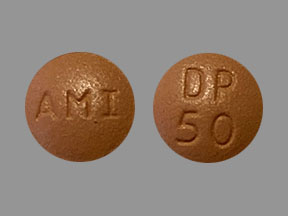
My prescription
Edit
50MG, Diclofenac Potassium (30 Tablets)
Select pharmacy

CVS
$20.05
COUPON PRICE
Walmart
$7.76
COUPON PRICE
Walgreens
$12.69
COUPON PRICE
Albertsons
$15.66
COUPON PRICEDiclofenac Potassium savings card
Show this card to your pharmacist
Walmart
$7.76
BIN
ID
PCN
GRP
019876
LHE134DE0F
CHIPPO
LHX
Powered by
More prescriptions for rheumatoid arthritis
More prescriptions for rheumatoid arthritis
Price history for Zipsor (brand) & Diclofenac Potassium (generic)
30 Tablets, 50MG
Average retail price for Zipsor
Average retail price for Diclofenac Potassium
Average SaveHealth price for Diclofenac Potassium
Our price history data is based on aggregated prescription data collected from participating pharmacies in America. Our prescription data updates daily to reflect the latest price changes. If you notice a missing data point, it means there wasn't sufficient data available to generate a monetary value for that date.
We analyzed Diclofenac Potassium prices for (50MG, 30 Tablets) over the last 12 months. The average retail price was $52.54, while the average price using the SaveHealth discount card was $13.82. That's a savings of approximately 73.70% when using our Diclofenac Potassium coupon.
Compared to the generic version, Zipsor had an average price of $552.33 over the same time period. With the SaveHealth savings card, Diclofenac Potassium is 97.50% cheaper on average than Zipsor.
*Retail prices are based on pharmacy claims data, and may not be accurate when we don't have enough claims.
Diclofenac Potassium dosage forms
Dosage Quantity Price from Per unit 25MG 20 Tablets $94.73 $4.74 25MG 30 Tablets $134.59 $4.49 25MG 60 Tablets $254.18 $4.24 25MG 90 Tablets $373.77 $4.15 25MG 120 Tablets $493.36 $4.11 50MG 30 Tablets $7.76 $0.26 50MG 20 Tablets $6.01 $0.30 50MG 21 Tablets $6.18 $0.29 50MG 60 Tablets $13.03 $0.22 50MG 90 Tablets $18.29 $0.20
| Dosage | Quantity | Price from | Per unit |
|---|---|---|---|
| 25MG | 20 Tablets | $94.73 | $4.74 |
| 25MG | 30 Tablets | $134.59 | $4.49 |
| 25MG | 60 Tablets | $254.18 | $4.24 |
| 25MG | 90 Tablets | $373.77 | $4.15 |
| 25MG | 120 Tablets | $493.36 | $4.11 |
| 50MG | 30 Tablets | $7.76 | $0.26 |
| 50MG | 20 Tablets | $6.01 | $0.30 |
| 50MG | 21 Tablets | $6.18 | $0.29 |
| 50MG | 60 Tablets | $13.03 | $0.22 |
| 50MG | 90 Tablets | $18.29 | $0.20 |
